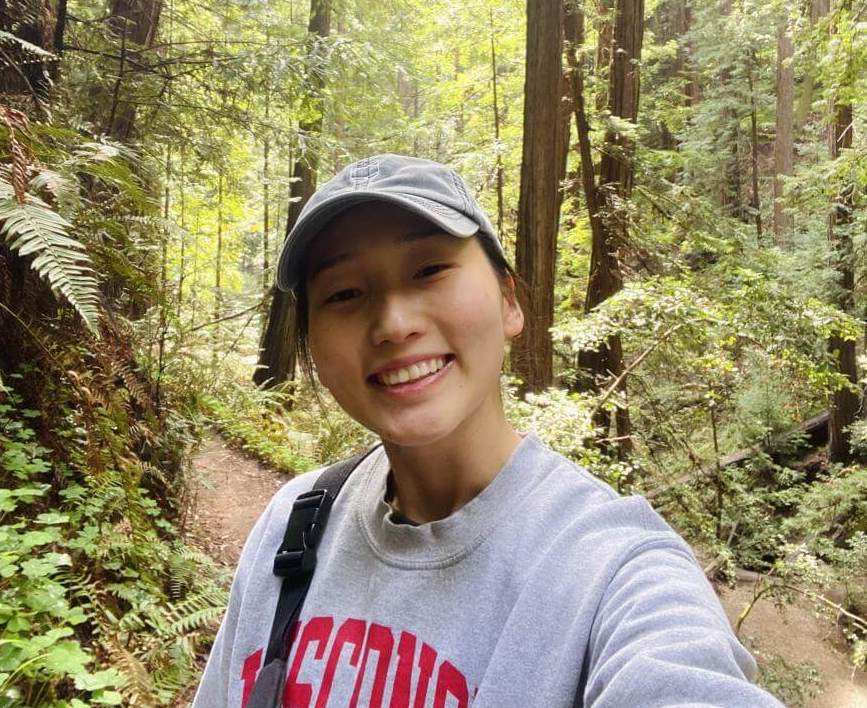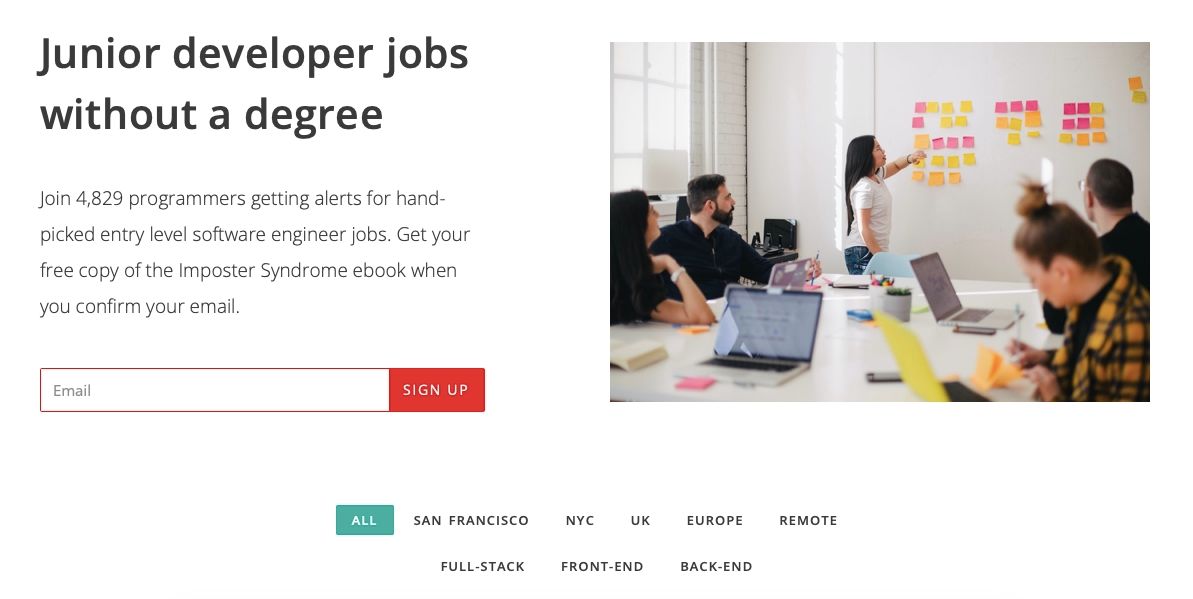Today's interview is with Lyn, a developer who changed career from urban planning after self-teaching and attending a coding bootcamp. In this article Lyn shares her tips on learning to code, her tips on being self-taught versus going to a bootcamp and how she got her first job!
Hey, so can you introduce yourself?
Hey Pete! Thanks for having me. My name is Lyn and I’m a full stack software engineer based in Southern California. I have a degree in Landscape Architecture and worked as an Urban Designer/Planner for 6 years prior to my career change into development. I currently work for an incredible mental health startup called Motivo Health, where we’re building an online platform that provides aspiring therapists with access to quality virtual supervision.

Why did you learn to code?
I learned to code for a multitude of reasons but the two most important ones would be so that I can prioritize my 1. health and 2. happiness. I’ve begun to realize after many years of working in the AEC (Architecture/Engineering/Construction) industry that achieving work-life balance was a hopeless endeavor.
I often had very intense work schedules with minimal opportunity to focus on my well-being over a prolonged period of time, which negatively affected both my mental and physical health.
Then in summer 2021, I underwent another major operation for a health condition I’ve been struggling with for a while which served as a catalyst for me to truly start advocating for myself. I’d been contemplating a career change for many years and decided that this was a sign for me to finally leave this career and use my savings to fulfill my dreams of starting another one.
Initially, I was looking into becoming an UI/UX designer given my background in design and engineering. I applied to several graduate-level programs and was accepted to a great university for their User Experience Design degree but decided to decline at the last minute due to their high tuition. After another round of thorough research considering my finances, interests, and other important life factors, I ultimately decided that I wanted to try pursuing development as my second career.
How did you learn coding?
I started my coding journey through the self-taught route. I chose FreeCodeCamp and The Odin Project to build my JavaScript foundation. There are a plethora of free online resources available to choose from but these two courses were some of the most frequently mentioned ones during my research phase. I actually wrote a detailed blog post about my learning journey which I will link to at the end of this interview.
After about 3 months of studying on my own was when I started feeling the urge to take my learning to the next level. I spent a lot of time perusing through forums trying to find answers to a lot of targeted questions, which often slowed my learning. I felt a desire to be in a classroom setting with a dedicated instructor who could guide me in the right direction through instantaneous feedback. I’ve always known that I thrive in a structured learning environment so I decided to apply for a 15-week full immersion development bootcamp near my home.
I feel that anyone can learn to code and become a great developer as long as they stay committed. However, I do believe that the bootcamp route might not be the best choice for everyone. There is a lot of content to absorb in a very limited timeframe which is highly stressful.
Yet, my learning progression was exponential, which was exactly what I was looking for. In my case, I spent about 12-16 hrs/day, including weekends, on in-class and take-home assignments and projects. I was very fortunate to have a partner who took over all household responsibilities during the duration of the program, allowing me to focus on my learning.
However, I’ve witnessed many students drop from the program due to reasons including, but not limited to, lack of time for family obligations, financial difficulty, inability to stay on track with the fast-paced curriculum, etc. so there’s a lot to consider when choosing if this is the right path for you.
How has your life changed since learning to code?
The most notable shift since starting my job as a SWE is the work-life balance! I feel extremely lucky to have landed my first engineering role in a company that truly cares about their employees’ happiness and wellbeing. I also work fully remote with flexible hours and that has genuinely been life-changing for me in many ways.
Secondly, I’m eternally grateful to have a manager, who is also my CTO, that endlessly mentors and keeps a close eye on my growth to make sure I’m steadily reaching new heights as an engineer.
I’ve never had a manager that made me feel valued and appreciated in any of my previous companies regardless of how good I was at my job so no words can express the amount of gratitude I feel now for consistently being recognized for my hard work. Nevertheless, my first 6 months as a dev were extremely hard but now I find myself enjoying the challenges that come my way; they only further aid my growth.
My salary growth trajectory has also significantly increased from my previous career. As a first-generation college graduate, this is a very meaningful win for me. One of my life’s biggest goals is to help my parents retire and I feel that my shift into software engineering has made the possibility of reaching this goal more realistic than ever.
What does a typical day as a software developer look like for you?
I wake up between 7:30-8am to eat, exercise and wash up, then start working at around 10am. I only have a handful of short meetings each week: a 1:1 with my CTO, a product team meeting to discuss goals/accomplishments/blockers (and to communicate asynchronously via Slack for the remainder of the week), a company-wide All Hands, and other smaller project-related huddles and pair sessions as needed.
Aside from these meetings, I dedicate most of my time to coding independently. I typically get assigned to a project where either myself or the project lead will create broadly scoped tickets and we each create our own subtickets as we work through the proposed features. There is always a good mix of both backend and frontend tasks to tackle for every project and I absolutely love it.
Lately, I’ve been dedicating more time doing code reviews for others between my pull requests (PRs). For a while, I’ve struggled to feel confident about giving reviews but I’ve recognized how much it’s helped me grow as an engineer in the last year so I’m beginning to enjoy doing them! Getting added onto the dev-on-call rotation has also pushed me to become more comfortable with code reviews as bug reports often lead you to areas of the codebase you’ve never been exposed to and it’s crucial that I’m able to understand code others have written.
All that is to say, I logged approximately 10-14 hrs/day during my first several months at the job because it took me a while as a new engineer to situate myself in the codebase with any given task. Nowadays, I’m able to have a productive day with multiple PR’s out the door within a regular 8hr timeframe or less.
How did you get your first web development job?
When I started my journey into tech, I dedicated a large chunk of my free time to networking. I attended meetups, joined various online support groups, started a #100DaysOfCode challenge on Twitter (now X) to share my learnings and listened in on a lot of Spaces.
As a result, I was able to forge a lot of really great relationships with others who were in a similar journey as me, as well as seasoned engineers who wanted to simply help early-stage engineers. Once I felt ready to start applying for jobs, I shared with my connections that I was looking for opportunities and that eventually led me to the job I have now.
My interview consisted of a full stack technical challenge that closely resembled a task that I would be assigned as an entry-level engineer. The expected timeframe for completion was 3-4 hours with two rounds of feedback, each round taking 30-45 minutes. After the technical challenge, I spoke to three team members: another engineer, a designer and our CEO. From the day I quit my job in architecture to accepting an offer letter to be a software engineer took me a total of 9 months.
What are your career goals for the future?
I want to continue being a part of a company with a mission to positively impact peoples’ lives in whatever degree, shape or form. I also want to become a mentor some day to other “No CS Degree” developers. It was very difficult for me to leave behind a career that I dedicated 10 years of my life to (4 years of college + 6 years of professional practice) to start fresh in a whole new industry.
I understand how much courage, hard work and dedication it takes to make this happen so I want to support those who are also going through a similar career change like me. Until then, here are some links to detailed articles I wrote to help guide others currently in the transition phase
Thanks for inviting me to share my story!



